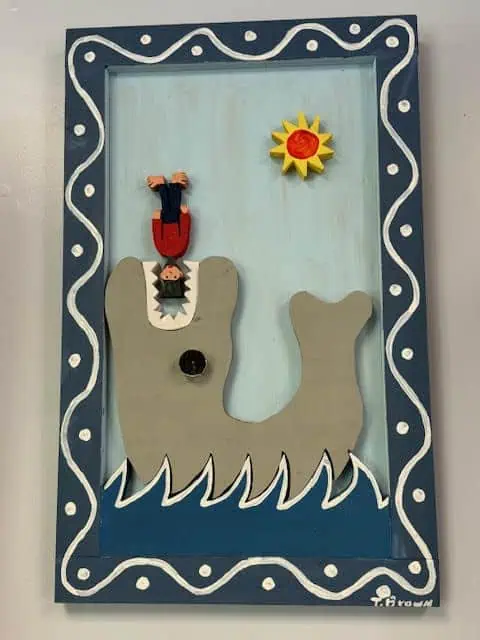Dear friends,
What a wonderful annual parish meeting we had on Sunday. Our new vestry members are Sarah Hancock, Marshall Kress, Jessica Peoples, and Alex Pierre. Our new senior warden is Susie Throop and Andrea Patton-Weerakoon is our new junior warden.
We also acknowledged and thanked our outgoing vestry members — Lynn Hood, who has served as clerk for three years; Wayne Hood, who oversaw the building; Bob Longino, senior warden; and Vivian Siggers, junior warden and outreach chair. I thank all of you for your service to St. Dunstan’s.
One thing I wasn’t expecting to happen was acknowledgement of my 20th anniversary at St. Dunstan’s. Bob’s kind words, your standing ovation, and the wonderful piece of folk art were overwhelming. It is hard to believe that I have been here for two decades, or two-thirds of my ordained ministry. Then I remember that Joseph Henry was three when we moved here and has now graduated from college and is soon to be employed.
The average tenure for a rector in the Episcopal Church is four or five years. I recently read an article arguing that no rector should stay more than 10 years. After that the priest becomes stale and the congregation needs new blood. I hope that’s not true. My experience is that with time we have gotten to know each other better, have a shared history, and are willing to go deeper with one another. And new parishioners coming in bring new life and ideas to those who have been here for a while. During the 13 months that we were out of the building during the pandemic, I often thought how glad I was to have this history with you. I know clergy who were brand new when the pandemic began or who started at new places during the pandemic. I can’t imagine how difficult that was. And, of course, I was so grateful for our shared history during Joe’s illness and the months after his death. Joseph Henry and I both knew that this was our extended family, and we both felt the love and care that surrounded us. I have had opportunities to go other places in the past 20 years, but the grass was never greener someplace else than it is here.
This is the fabulous piece of art I received Sunday. Joe and I enjoyed folk art. This one of Jonah and the Whale by Tubby Brown, has a special meaning for me. When I graduated from seminary 30 years ago next May, it was amusing to watch some of my classmates becomes so enamored of all the trappings of ordination, the clothes, the vestments, the new titles (father, father, father). As an antidote to that I chose a reading from Jonah for the Old Testament reading at my ordination. It is not one of the recommended readings, but I chose it for one verse, “God appointed a worm.”
A little context might help. Jonah is a recalcitrant prophet who has no desire to follow God’s instructions for him to warn the people of Ninevah to repent. He hated Ninevah. So he went in the opposite direction and ended up in the belly of the big fish. After the episode, he grudgingly agreed to do as God had instructed. So he went through Ninvevah, half-heartedly telling the people to repent. And they did. Most prophets would be overjoyed at such success, but not Jonah, who didn’t want Ninevah to be saved. So he sat pouting under a bush, which God had provided for him. The next day “God appointed a worm that attacked the bush so it withered.” Jonah was once again furious at God, who reminds him that the people of Ninevah are also God’s children.
So back to the worm — the moral of this story (as preached at my ordination by my Old Testament professor” is that anytime we start to think too much of ourselves, or to “get the big head” because we have been called to such important work, we should remember that God’s work was carried out by a worm. And conversely, when we feel like there is nothing we can do to make a difference in the world, we should remember that if God could use a worm God can certainly use us.
How wonderful to get a piece of art that reminds me of that long ago sermon on an important day of my life.
With love,
Tricia

